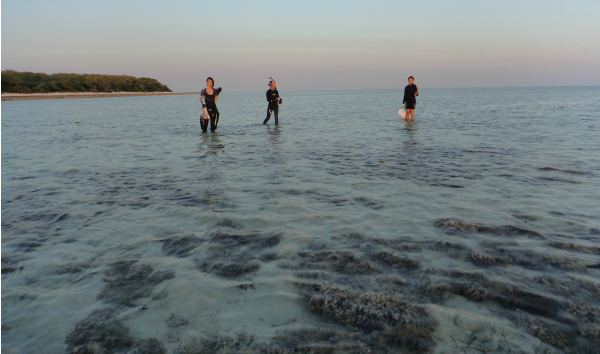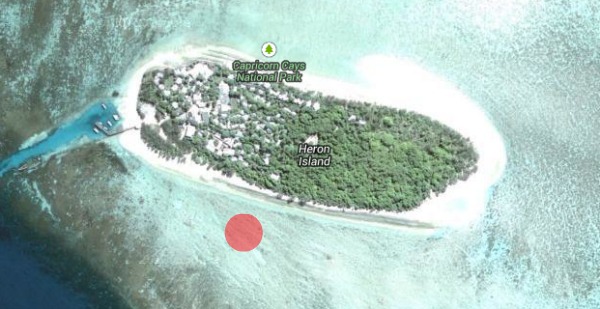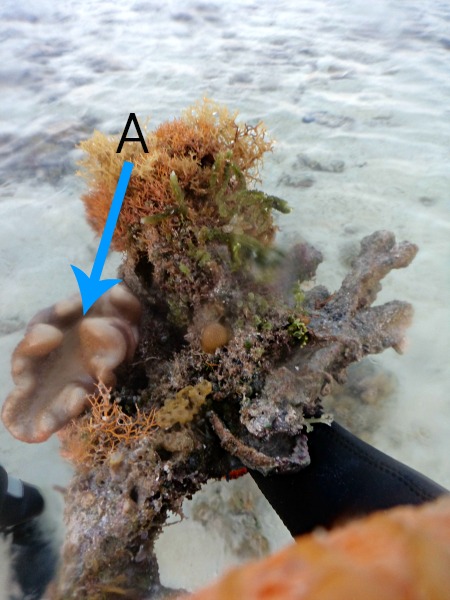Summary
Physical Description
Size Range
Colour
Ecology
External Association
Internal Association
Life History & Behaviour
Feeding
Reproduction
Gas Exchange & Excretion
Defence
Anatomy & Physiology
Anatomical Adaptation
Evolution & Systematics
Paleontological Evidence
Biogeographic Distribution
Conservation & Threats
References & Links | 
 |
Pic 1 Southside of Heron Island's inner sandy reef flat. Picture display low tide where water is below
knee deep. Corals that grow in this area flat, short, and have settled on boulders. |
Sarcophyton ehrenbergi species that are on Heron Island Reef can be found on the inner sandy reef flat. In the sandy area, rubbles and boulders of dead coral can be found that have been colonised by other organisms such as corals, sponges, and even algae. The dead coral boulders provide a new foundation for organisms which have settled on them, which further attracting cryptic, sedentary, and pelagic organisms.
 |
Pic 2 Map of Heron Island and part of the reef. Red spot represents the area there a few
Sarcophyton ehrenbergi were found. (Image taken from maps.google.com) |
Specimen for study purposes were collected from the south side of Heron island (pic 2). Specimen was found growing on a boulder that was half submerged under the sand. Retrieving of boulder with leather coral required some digging. Some leather corals can be found on large boulders that require breaking with a hammer and chisel.

Pic 3 Small piece of dead hard coral found amongst the boulders on
the reef flat. Many sessile organisms have taken over various places
of the dead coral, each competing for space. A: Small colony of
Sarcophyton ehrenbergi growing on the side of the dead coral.
Pic 3 Small piece of dead Acropora found amongst the boulders on
the reef flat. Many sessile organism have taken over various places
of the dead coral, each competing for space. A: Small colony of
Sarcophyton ehrenbergi growing on the side of the dead coral. |
|
|